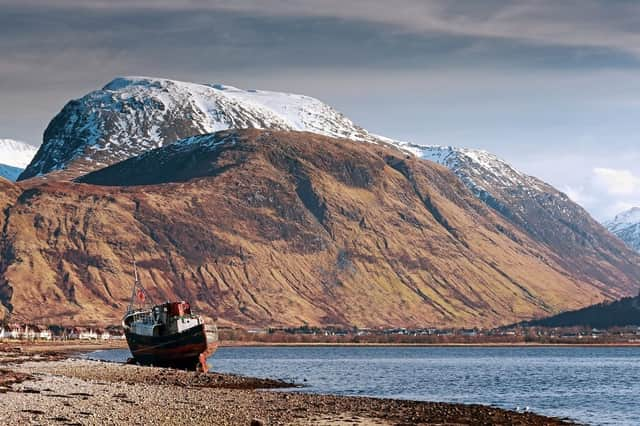Could Scotland really be seen as a Northern nation? A view from Denmark


Faced with the uncertainty of Brexit and many other challenges, Scotland seems to be looking towards the Arctic region for new opportunities. With the prospect of no longer being part of an EU member state and perpetually questioning its place in the United Kingdom, Scotland is now seeking to define itself as a “Northern” nation.
Definitions of the Arctic and the North are becoming increasingly blurred. That, in turn, affects debates about who gets a say in regional politics. Non-Arctic states, such as France and Germany, and supranational actors, like the European Union, argue that they are affected by regional developments in the North and should have a say in what is happening there. They want to help protect the Arctic environment but they are also interested in potentially capitalising the results of climate change. Mainly, as the region opens up, its resources and waterways present new economic opportunities.


Advertisement
Hide AdAdvertisement
Hide AdOne arena for regional discussion is the Arctic Circle. According to its website, this is “the largest network of international dialogue and cooperation on the future of the Arctic”. Partners include states, sub-states, IGOs and NGOs from around the world.
At the Arctic Circle’s latest meeting in Edinburgh, many of the speeches and maps shown suggested that Scotland is in the North. Sometimes, however, North and Arctic were conflated by presenters. This made Scotland seem more Arctic than it is, which was emphasised repeatedly by delegates talking about Scotland’s links and proximity to Iceland.
The Arctic region, according to the US Department of State.US Department of State
The Arctic Council, meanwhile, is the most recognisable and established Arctic forum. It has a stricter set of parameters defining the Arctic states and how other actors (the non-Arctic states, NGOs, and IGOs) can participate. It is focused on environmental protection and sustainable development under the leadership of the eight recognised Arctic states – Canada; the Kingdom of Denmark (Denmark, Greenland, Faroe Islands); Finland; Iceland; Norway; the Russian Federation; Sweden; and the United States. It has generated reports, such as on the environmental impact of climate change and global warming and biodiversity, and has facilitated the development of three regionally focused legally binding agreements.


Scotia north star
Advertisement
Hide AdAdvertisement
Hide AdScotland is a recent addition to the crowd seeking a role up north. The Scottish government is seeking to promote the nation’s northern-ness, capitalising on the malleable meanings of the words “Arctic” and “North”.
It is not that far fetched to think of Scotland as being in the North. It is the northernmost place in the United Kingdom and borders the North Sea. It also plays a strategic role in the search and rescue coverage of the Faroe Islands. The United Kingdom provides these services, based in Scotland, in partnership with Iceland and Denmark. As such, Scotland has close links with some Arctic states.
While there is no set international definition of the North and Arctic, they are not exactly the same place. Norway, for example, makes a point of distinguishing between its North and its High North, as well as the Arctic on occasion.


Scotland lacks recognition as either being part of the Arctic or High North. Crucially, it is not a member of the Arctic Council, although the United Kingdom is an observer state.
A northern future
Advertisement
Hide AdAdvertisement
Hide AdBut the Scottish National party-led government is planning for a future in a post-Brexit and possibly post-independence political landscape. The Arctic and the North are part of this plan. “Scotland – as a close neighbour of the Arctic states … has a key interest in developments in the High North … [T]he Scottish government is committed to continuing to explore ways to deepen our engagement on Arctic issues and enhance our relationships with the Arctic states,” a recent paper stated.
Alasdair Allan, Scotland’s minister for international development and Europe, made the intention clear: “From our location in the north-west corner of the continent, we have always looked outwards building strong cultural, economic and social links with our neighbours across the continent.”


Allan noted the role of Brexit in Scotland’s northern focus, stating that it “voted overwhelmingly by 62% to 38% in favour of remaining” in the EU and will work to build links with Europe regardless of Brexit.
Scotland, like France, Germany and the EU more broadly, wants a greater say in Arctic politics. Environmental issues are hitting the region hard, particularly with decreasing ice thickness and coverage. These changes are impacting global temperatures and sea levels. With Brexit looming and independence from the UK still a possibility, however, economic possibilities in the Arctic and the North are the main draw for Scotland. As a result, it is a great time to be seen as a northern nation, and the Scottish government is striving to brand its country accordingly.
Danita Catherine Burke, Postdoc in International Politics and Arctic Studies, University of Southern Denmark
This article was originally published on The Conversation. Read the original article.